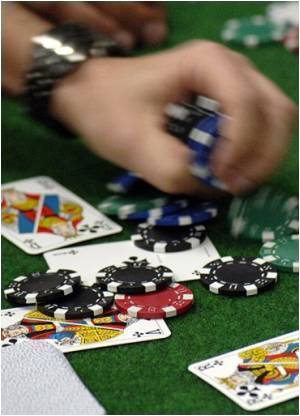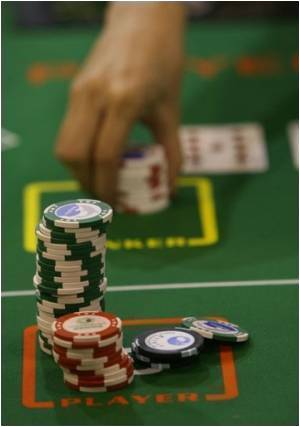In problem gamblers researchers have identified an association between impulsivity and flawed reasoning (believing in superstitious rituals and luck).

Pathological gambling, also known as problem gambling, is a recognized psychiatric diagnosis with symptoms including being unable to resist impulses to gamble and being unable to stop gambling even when losing, which can lead to debt and family problems.
Dr Luke Clark, from the University of Cambridge's Department of Experimental Psychiatry, said: "The link between impulsivity and gambling beliefs suggests to us that high impulsivity can predispose a range of more complex distortions - such as superstitions - that gamblers often experience. Our research helps fuse these two likely underlying causes of problem gambling, shedding light on why some people are prone to becoming pathological gamblers."
The researchers, from the University of Cambridge and Imperial College London, compared 30 gamblers seeking treatment at the National Problem Gambling Clinic with 30 non-gamblers from the general population.
Dr Clark added: "There are promising developments in treatments for problem gambling such as psychological therapies and drug medications. We hope that our research will provide additional insight into the problem and inform future treatments."
The findings have been published in the journal Psychological Medicine.
Advertisement








